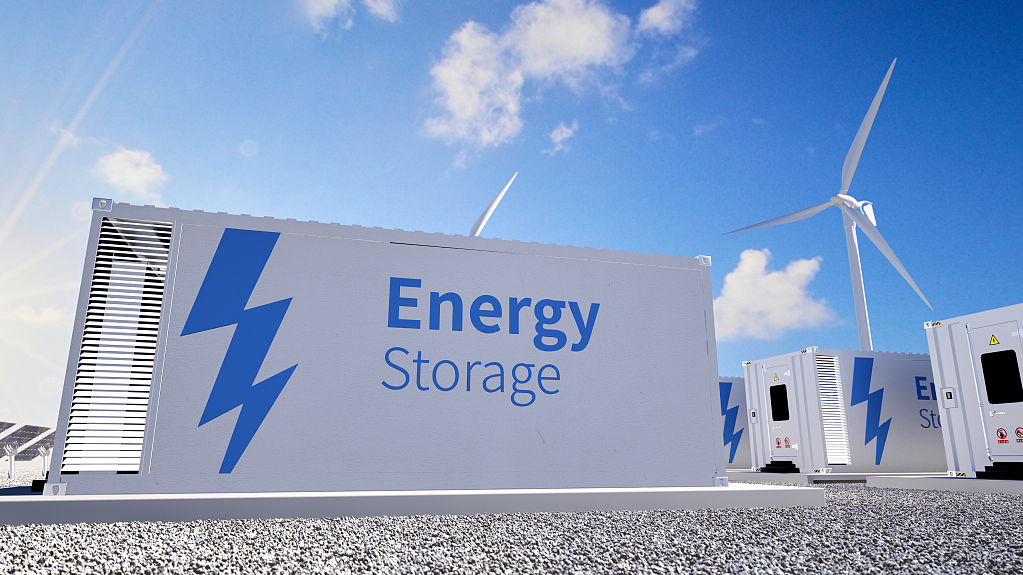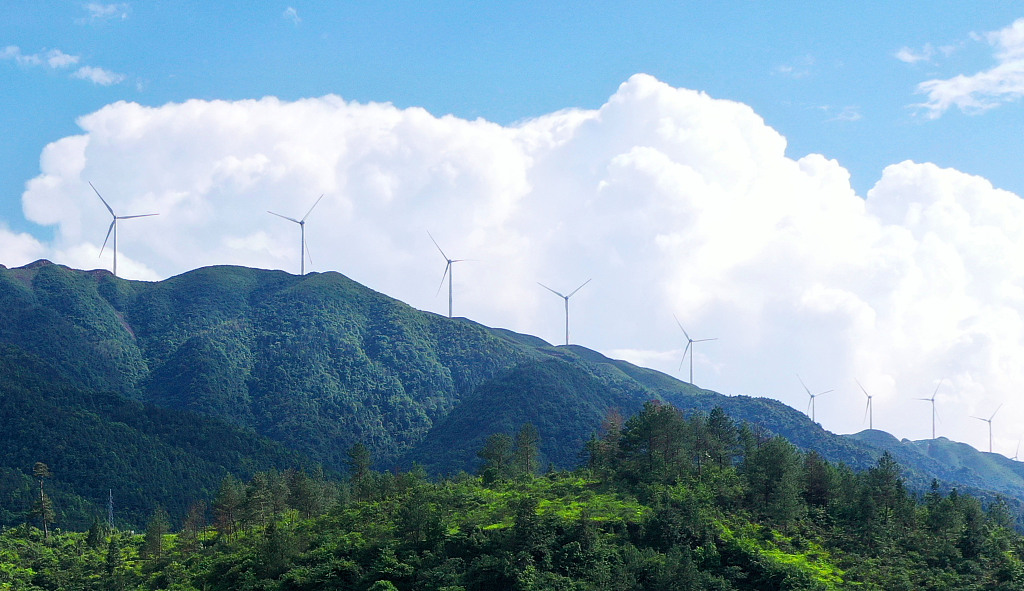
Global investments in renewable energy need to triple by 2050 to put the world on the trajectory toward net-zero emissions. /CFP
Global investments in renewable energy need to triple by 2050 to put the world on the trajectory toward net-zero emissions. /CFP
Global investments in renewable energy need to triple by 2050 to put the world on the trajectory toward net-zero emissions, according to the latest report released by the World Meteorological Organization (WMO) on Tuesday.
The supply of electricity from clean energy sources must double within the next eight years, or global energy security could be undermined, the report said.
According to the WMO's 2022 State of Climate Services report, climate change is putting global energy security at risk. The effects of climate change, including more frequent and intense extreme weather, are directly affecting fuel supply, energy production and energy infrastructure.
Although water resources are scarce globally, 87 percent of global electricity generated from thermal, nuclear and hydroelectric systems in 2020 depended on water availability. Some 33 percent of the thermal power plants that rely on freshwater for cooling are in high water stress areas, as are 15 percent of existing nuclear power plants – a figure that could rise to 25 percent in the next 20 years.

Wind power helps reduce carbon emissions in Ji'an City, east China's Jiangxi Province, May 14, 2021. /CFP
Wind power helps reduce carbon emissions in Ji'an City, east China's Jiangxi Province, May 14, 2021. /CFP
"Time is not on our side"
"Net zero by 2050 is the aim. But we will only get there if we double the supply of low-emissions electricity within the next eight years," said WMO Secretary-General Petteri Taalas.
"The energy sector is the source of around three-quarters of global greenhouse gas emissions. Switching to clean forms of energy generation, such as solar, wind and hydropower – and improving energy efficiency – is vital if we are to thrive in the twenty-first century."
"Time is not on our side, and our climate is changing before our eyes. We need a complete transformation of the global energy system," Taalas said.
Africa could be a major renewables player in the future, the report said. The continent is already facing severe effects of climate change, including massive droughts. The declining cost of clean technology holds new promise for its future, and Africa has a huge opportunity to help close the gap in the need for renewable energy.
By 2050, global electricity needs will be mainly met with renewable energy, with solar power being the single largest source. However, although Africa is home to 60 percent of the best solar resources globally, it only has one percent of installed photovoltaic capacity.
An investment of $25 billion annually is required to provide access to modern energy for all Africans, the report said. It represents around one percent of the current global energy investment.
Read More:
Low-carbon Day: China tops world in installed offshore wind power
Renewables to cover 50% of China's energy consumption growth by 2025
(With input from Xinhua)